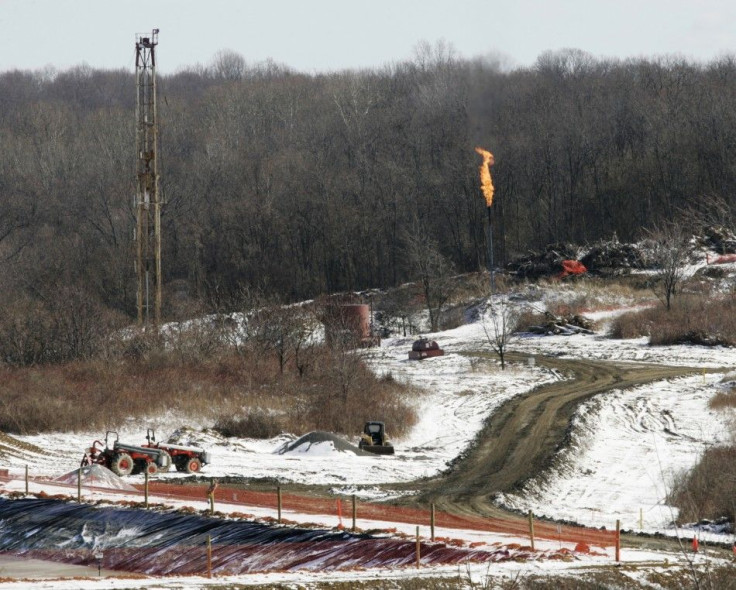Judge Issues Injunction Against Pennsylvania Law Regulating Natural Gas Industry

A new Pennsylvania law on the regulation of natural gas development including hydraulic fracturing, which local municipalities say takes away their land use and zoning authority, has been temporarily suspended by a court-ordered injuction.
The injunction was placed days before Pennsylvania's Act 13 was scheduled to take full effect.
Act 13 was approved by the Pennsylvania legislature in February and would have gone into full effect Saturday, but Judge Keith Quigley of the Commonwealth Court ordered a 120-day halt to provisions of the law touching on land use and local zoning regulations, reported the Valley News Dispatch.
The Act is subject to a lawsuit seeking to revoke provisions of the bill that municipal governments say takes away their rights. Townships fear the law will strip local governments of their ability to control, how, where and who can drill for natural gas within municipal borders.
The Act paved the way for establishing an impact fee for natural gas production, but opponents say local government zoning and land use laws will be forced to yield to a blanket one-size fits all ordinance.
It's the first step. It will certainly give municipalities breathing room to decide what they are going to do with their ordinances, Mount Pleasant Township Solicitor, William Johnson, said of the injunction. This is the initial skirmish.
Mount Pleasant Township is one of the seven municipalities trying to get the Act overturned.
Johnson said the suit is not a move against natural gas drilling, but rather an effort to make sure local government rights are respected.
Mount Pleasant has a population of roughly 3,500, and has 110 natural gas wells, said Johnson. Currently the town has laws restricting wells to 750 feet from schools, houses and other buildings within the town. Under the Act, that distance will be reduced to 500 feet.
Brian Coppola, supervisor of Robinson Township, one of the litigants against the bill, said Act 13 is one of the most anti-business peices of legislation the state has ever seen. Developers, he said will not want to move their business into the state knowing that at any time, a well pad, compressors and fracking fluid retention ponds can appear almost at will.
If Act 13 has been voted on today, I don't think it would have passed, Coppola said.
According to Act 13, the state would adopt a universal zoning and land-use standard, which would void standards already put in place by some local governments in the state.
Act 13 has, since it was passed into law several months ago, been controversial, with various state groups opposed to multiple provisions of the law.
State health practitioners, for instance, say the bill acts as a gag order against the disclosure of the toxicity of hydraulic fracturing chemicals to their patients, despite assurances from the bill's author Brian Ellis, a Republican, that it would not.
But the most contentious has been language that suggests all local zoning ordinances regulating the oil and natural gas industries would be superseded by the new law.
On March 29, seven municipalities, including Mount Pleasant, filed a lawsuit against Act 13's land use and zoning provisions, accusing the state's General Assembly of enacting an unconstitutional statewide zoning ordinance by way of an improper use of its police powers and by enacting zoning regulations without consideration of zoning districts, comprehensive plans or how the zoning enactments would serve to protect the health, safety, morals or welfare of local communities.
Representative Ellis' office declined to comment.
Pennsylvania is undergoing an energy boom thanks to hydraulic fracturing, or fracking, a drilling technique that fractures rock by blasting it with thousands of gallons of water, chemicals and sand.
The state sits atop as much as 84 trillion cubic feet of natural gas, and hydraulic fracturing has been accused of contaminating water supplies in some rural communities.
The court has yet to schedule a hearing to debate the merits of the township's suit.
© Copyright IBTimes 2025. All rights reserved.





















